AHS, Pose and It's A Sin stars open up about queer representation on screen
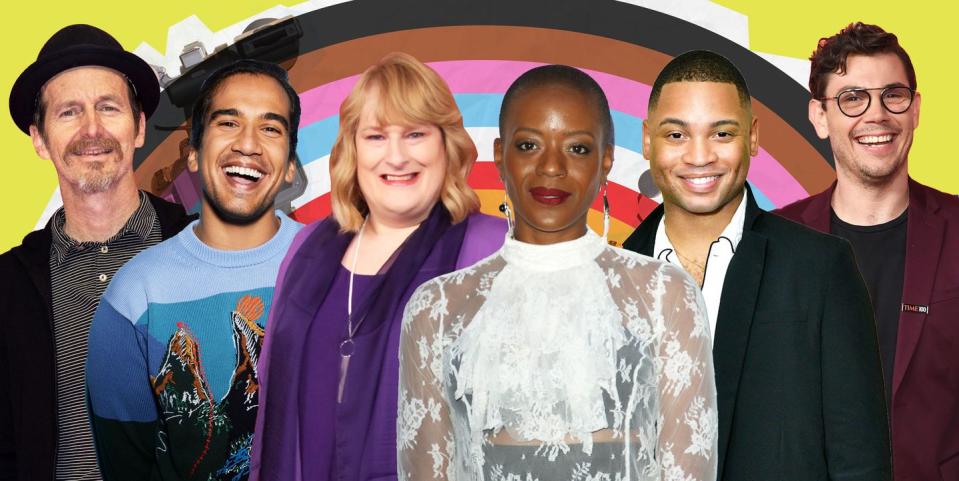
Rainbow Crew is an ongoing interview series that celebrates the best LGBTQ+ representation on screen. Each instalment showcases talent working on both sides of the camera, including queer creatives and allies to the community.
Next up, we're speaking to Nathaniel Curtis (It's a Sin), Ryan Jamaal Swain (Pose), T'Nia Miller (The Haunting of Bly Manor), Ryan O'Connell (Special), Denis O'Hare (American Horror Story), and Annie Wallace (Hollyoaks) in one big special edition.
"The revolution will not be televised." Gil Scott-Heron's immortal words might have rung true when first uttered in 1970, but that's no longer the case in 2021, and especially when it comes to LGBTQ+ rights. Yes, the Stonewall riots sparked change off-screen just one year earlier in 1969, and since then, the likes of ACT UP and Stonewall have continued to push back against a world that doesn't accept us. Even Pride remains an act of protest, lest we forget, amongst all of the corporate branding and police involvement.
But still, for millions of queer people worldwide, the revolution has very much been televised – albeit in small, incremental steps.
Following decades of erasure in the media, a harmful kind of visibility began to emerge where LGBTQ+ viewers saw themselves derided and even mocked on screen. Then, by the time that the '90s rolled around, these cruel stereotypes were sidelined (to some degree) by a different cliché, one where the lives of queer people were reduced to pain and tragedy. But of course, that was only if you were white, gay, male and cisgendered. Fall out of that very narrow range, and you probably didn't see yourself represented on screen at all.
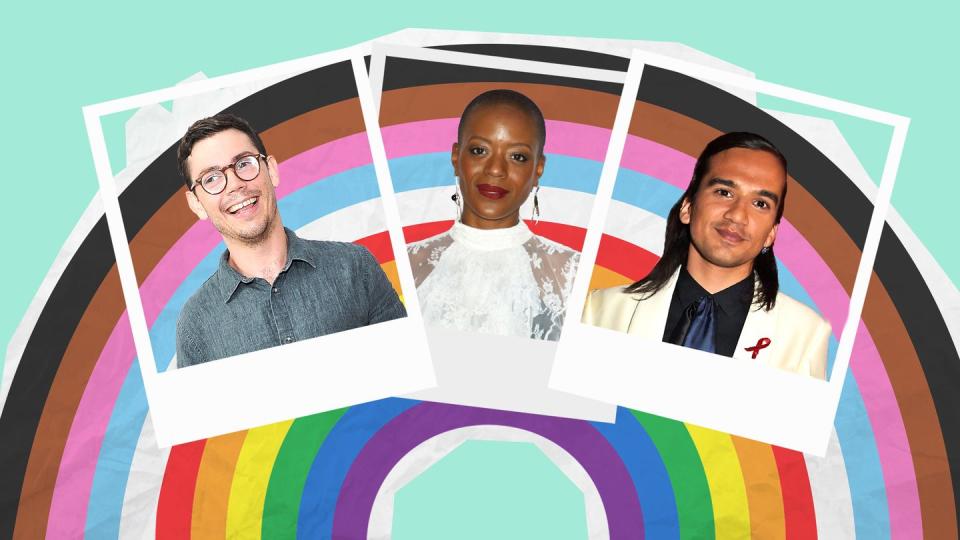
People are often quick to say that things are better now, and that is true to a point. Thanks to positive role models and proud queer voices, the LGBTQ+ experience is more visibly authentic and diverse than ever on screen. From Will & Grace and Queer as Folk to Pose and Euphoria, each milestone that TV hits is also a win for the community at large. Because in the long haul, that's where the majority of hearts and minds are won, on our phones and in our living rooms. And that's where we'll continue to fight for LGBTQ+ voices to be heard, because the revolution isn't over yet, not until things are truly equal.
To celebrate the progress we've made so far, Digital Spy caught up with six extremely talented individuals in this very special edition of Rainbow Crew, our dedicated LGBTQ+ interview series. Join us in conversation with Nathaniel Curtis (It's a Sin), Ryan Jamaal Swain (Pose), T'Nia Miller (The Haunting of Bly Manor), Ryan O'Connell (Special), Denis O'Hare (American Horror Story), and Annie Wallace (Hollyoaks) as we discuss their own personal experiences in the industry and what still needs to be done moving forward.
On seeing queer representation for the first time on screen...
Denis O'Hare: I was born in 1962. The first representation I saw was The Boys in the Band, which is a play I still don't like. I just don't like it. I think it's very corrosive, and it did damage to me. It was not positive. It presented a bleak, bleak, awful world.
There weren't a whole lot of positive role models. I don't remember a positive gay movie. Maybe... I'm trying to think. Withnail and I, kind of. Were they gay? I don't know if they were gay... I'm just trying to remember anything else that stands out as hopeful. There weren't a lot of hopeful things, you know?
Annie Wallace: The first time I saw someone who was trans on television was the late Julia Grant. It was this documentary series on BBC One called A Change of Sex. It followed her transitioning, and going to the doctor's in London, and seeking reassignment, or gender confirmation as it's called now.
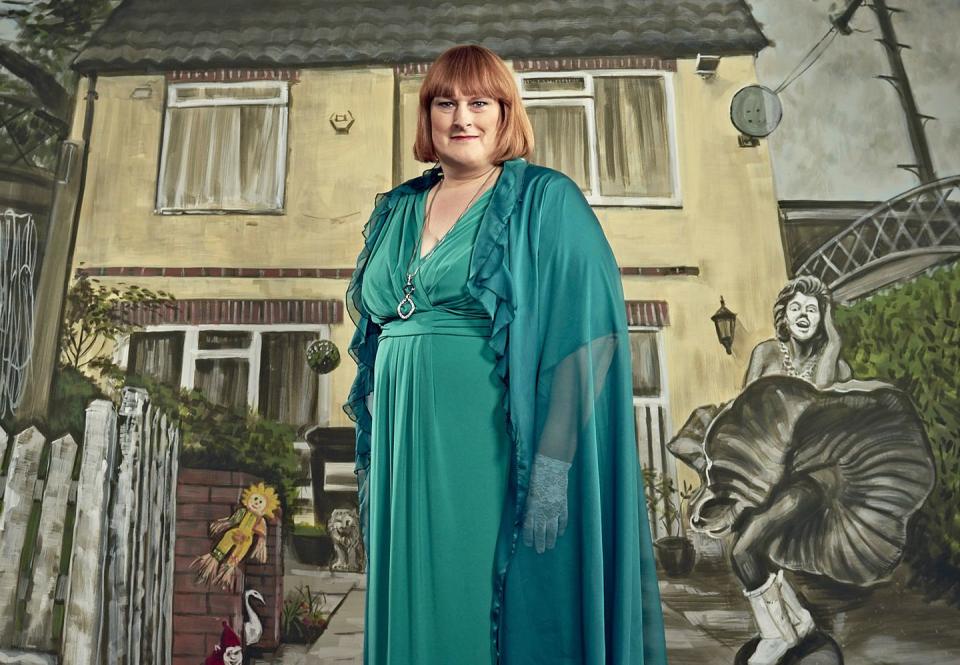
It follows the whole process of going through that. And I was absolutely hit by it. I was like, "Oh my God, this is obviously who I am. It's obviously what I am." And at the same time, I was like, "Oh, God, look at that hospital and doctors. It's terrifying!"
I watched it in my bedroom on a little portable television with the sound turned down so that Mum and Dad couldn't hear what I was watching [laughs]. Because for them – if they know that I'm watching this programme, they're going to ask me questions about the show.
T'Nia Miller: I think it was the famous Brookside lesbian kiss. I'm telling my age now [laughs]. I was a child, and I didn't get past the kiss. I don't know what else happened. I don't know what the storyline was. It was a long time ago, and I was far too young to remember.
But that was the first time I saw anything like that on screen – or anywhere, actually, because I come from a very traditional Caribbean family, who were not religious, but were Christians who had Christian values and what have you. So it just wasn't part of my world, growing up, at all. There wasn't any sort of representation out there at all for me, even in my 20s, I would say.
I didn't have any queer community, or any friends until I went to college. I went to college in Ladbroke Grove, Notting Hill, around there. I was travelling from East London. And then this whole world opened up to me of queer culture and queer people.
Ryan Jamaal Swain: It's funny that I'm on a Ryan Murphy show, because the first time that I really saw it was on Nip/Tuck, and I think also Glee. As a high-schooler, I would see bits and pieces of, say, somebody that was queer and white, and, you know, it's gay queerness. But I never saw Black or Brown queerness.
There were moments where I was just sitting at home and would be watching local TV or something like that, and I would close my door, and I would see maybe Noah's Arc or something like that. But bits and pieces. You know what I mean? Never full representation.
There's a term: symbolic annihilation, where you don't see yourself represented in the media, and you just don't think you're important. That was what I was really going through, especially growing up in my hometown, in the south of the country, and really having to hide who I was. It was very important for me to find little bits and pieces of joy and hope, specifically queer joy and hope. I was like, "OK. Oh, I'm not weird. There's nothing wrong with me. I'm normal."
On the importance of authenticity in queer storytelling...
Nathaniel Curtis: As someone who didn't see a lot of himself represented on screen, even until recently – it's a conversation that I find myself having a fair bit. I find myself in the in-between, in that I'm of dual heritage. I'm Indian and I'm English, and I'm somewhere in between that. I have had relationships with women. I have had relationships with men. I identify as queer. I sit in that in-between as well.
It's a Sin tells a story of a generation who were absolutely brutalised, not only by this massive disease that just ruined – ruined! – everything, but then also the media; and we all know that the media are still not great all the time. When you think about Colin, who got fired for being gay; when you think of Ash, who was tortured at work for being gay; when you think about all the phone calls that Jill had to take from these men who were terrified about coming out to people...

People who know what that's really like are the ones to tell that story. Not to say that, obviously, straight people can't give beautiful performances. You think about Carol, and Cate Blanchett with Rooney Mara, and Timothée Chalamet, and Tom Hanks in Philadelphia. All these beautiful people. But I think it's the respect. Even if you were to have straight people play these roles, it has to be done with respect.
Ryan O'Connell: When you have authenticity, your story's already going to be a better standard than if it's written by a straight white guy. But I think historically, Hollywood has had no issue profiting off the pain of marginalised people. You look at the credits, and you're like, "Is there someone from this community who's actually a part of this movie?" Maybe they're hired as a consultant, and then you're like, "OK..."
That doesn't do anything at all. That just makes you pat yourself on the back for being so brave, for picking this world. You're not actually doing anything to truly help that community. They're going to stay marginalised.
Being in a position to employ people is the most exciting part about doing my job. Because I think that's really the only way you advance in this hellish, capitalist culture.
Ryan Jamaal Swain: With many things I've been a part of, there's always this marketing scheme or this idea that if you fill those roles with authenticity, then they can't sell. And I think that we flipped that on its head with Pose being the largest LGBTQI+ series cast ever assembled.
It's so important, right? I can never tell a story about transness, or being Jewish, or being Muslim. I think it's really, really important specifically because people that are authentic with all those experiences and those intersections, can inject the world with specificity and nuance.
You can't tell a story you don't know. The best story that you can tell is the one that you do know. I don't want a cis-het white man talking to me or telling me about my story, love. You can't tell me about my story, because, at the end of the day, you don't know my story. And oftentimes, because things are selling and being marketable, and doing really, really well, they try to jump on the bandwagon of telling stories that are not necessarily theirs but are in the fabric and in the centre of everybody's consciousness at the present moment.
But it always falls short. You can be inspired, honey, but that doesn't mean you tell the story that you don't know about [laughs].
T'Nia Miller: I think it's bloody important. I think it's really important. It's the same thing about being a Black woman, and having these stories written – you're like, "This is being written by some middle-class white male who hasn't had any access to this community. Why have you not got a cultural advisor on board? Why do you have producers and writers and people at the top making these decisions when you're telling these stories?"
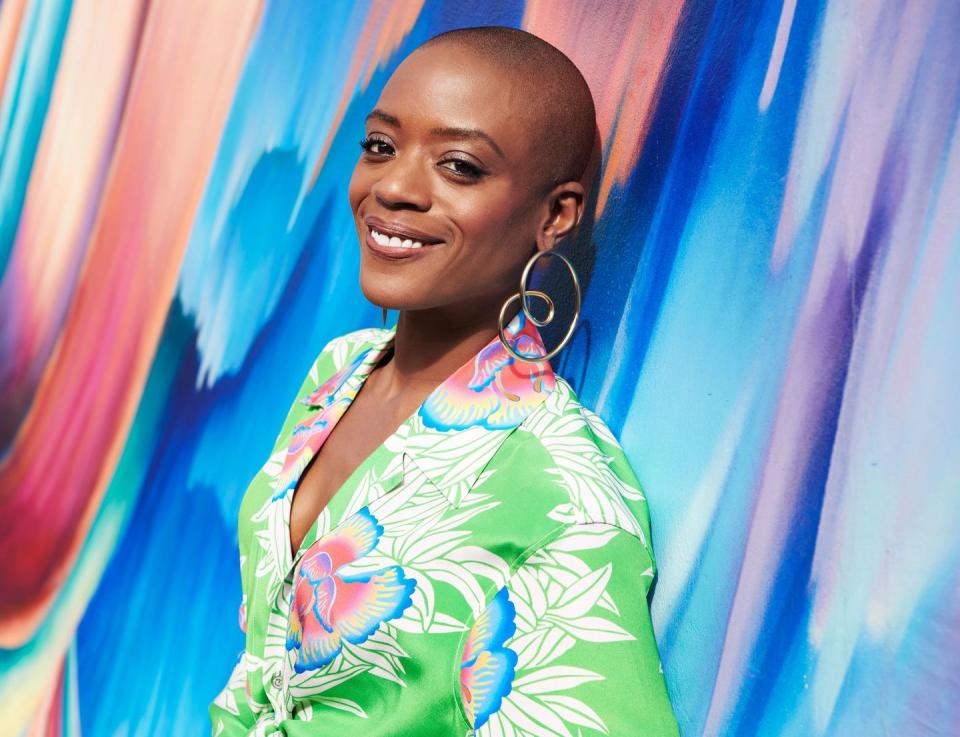
I think it's exactly the same if you're telling any story. It should be authentic. I think it's important to involve those people who are from that culture and that background. No-one has the right to tell anybody else's story without doing due diligence, because mistakes happen, and we offend people, or we get it wrong, or people feel marginalised. They're still not heard, and it's actually infuriating – personally, I find it infuriating when it's lacking; so obviously lacking.
There's no need for it. There's no space for it. Not now. It's 2021, man.
On whether being queer held back their career...
Annie Wallace: Well, I didn't come out as trans for a very long time. I transitioned in the late '80s. At that time, if you were trans, you kept your head down, and you just got on with your life – if you could. If you blend in, then that was the target, because then people would leave you alone. And I blended in. I was quite lucky in that respect.
So I went to drama school, and nobody knew I was trans. I got hired on other jobs. I started working in theatre, and nobody knew I was trans. I was just playing ordinary roles. I only decided to come out, as it were, just before I joined Hollyoaks, when I was auditioning. If I actually bit the bullet and dealt with public opinion about my life, then I could actually have acting opportunities that previously didn't exist.
So Hollyoaks came along, and I auditioned for that, and I was lucky to get the role. But, you know, I auditioned for some other stuff as well. I didn't get those roles, but it wasn't because I was trans. They wanted a younger person in Banana and Cucumber. With Boy Meets Girl, they wanted someone again who was younger, but maybe a bit more elegant, and I'm a bit more mumsy [laughs]. But that's not trans-related. That's a case of: "This person fits our view of the character better."
Ryan O'Connell: I don't think people knew what to do with me. There's no reference point for being queer and disabled in Hollywood. I don't think people understood where to put me. So that was a real challenge. I had to really force my way in, and carve out a space for myself – like, squeeze the f**k in. And that was really frustrating because I don't see my existence as being that confusing or complicated. But just by virtue of no-one like me being really that visible, it is to some people.
You know, we went out, and we pitched Special in 2015, which, in woke Hollywood years, was like 400 years ago. People really loved the pitch, but they just didn't know what to do with it. It felt like they were handed a hot potato and just needed to push it off to someone else. And that was really hard because, on a personal level, it kind of reaffirmed what I feared, which was that my existence is too fringe and too strange for anyone to understand, or it doesn't have value.
That's what's been so affirming from the success of Special. I always knew that this story could resonate, even beyond being queer and disabled, because when you strip us down to our barest bones, we really are all very similar in terms of our wants and desires, you know? And that's the whole point of storytelling. It's to create empathy and understanding, and show people "we're not all so different".
Denis O'Hare: Not for me. It really didn't. I'm a character actor, and so I've been lucky that it's rarely been a consideration. I've probably played more straight characters than gay characters in my life. I remember not getting a job once, where I wasn't gay enough. The casting director assumed I was straight. I was like, "We come in all shapes and sizes and representations!"

Early on in my career, I definitely wasn't interested in playing anyone hyper-gay. I didn't avoid it, but I was sort of relieved because I didn't want to, I suppose... Actually, you know what it was? It's more that it wasn't in my wheelhouse. I personally, myself, had not been that flamboyant. And so that's not a thing that I am super-good at. I've gotten better at it as I've gotten older and now enjoy it.
I suppose that's a version of internalised homophobia, of not wanting to do that. Because we are also products of our culture, and I definitely have gone through revelations of, "Oh, that's homophobic. I'm actually homophobic. I've internalised all this stuff."
T'Nia Miller: Not with my sexuality, no. I mean, you have to remember, if I was a white woman sitting here, I might be able to lean into that. But my experiences are primarily as a Black woman. My sexuality isn't worn. Unless I say it, you don't necessarily know it, right? But my identity as a Black woman is just there. So those are the things that I have faced in terms of feeling othered, or being othered, or having to take it on myself – you sometimes feel like you're having to represent a whole race of Black people.
Sometimes you have to be careful because you don't want to come across as the angry Black woman. And so what somebody else who isn't Black might be free to say or free to behave, I would check myself twice. So that's more the thing, more than my sexuality. I think if you speak to any Black person who is queer, the thing that they're going to come up with first is being a Black person, more so than being a queer person of colour.
The reality is getting better. We're not there, but it is getting better. The fact that we can even have this conversation shows that it's progressing, but not enough. When they said that there's no institutionalised racism in Britain, it's like, "You f**king arseholes. You literally created it [laughs]!" That's where it stems from, right? Idiots.
On what we need to see in queer stories moving forward...
Ryan O'Connell: I just want to see complicated, messy characters. Representation is important and there is this need for diversity. But I just want to make sure that people don't become holograms for their suffering. I think we need to grant people the full spectrum of the queer community. I feel like we're allowed to exist but within these narrow confines. People are super-complicated, and sometimes people are assholes, and sometimes people are not acting the way that you think a minority should act.
I think that initially, it was like, "Well, if this character's disabled, he needs to be really amazing and sweet and loveable and this and that." I think we're ready to move past that. I think it does a disservice to the community that you're representing if you don't really let them be awful sometimes.
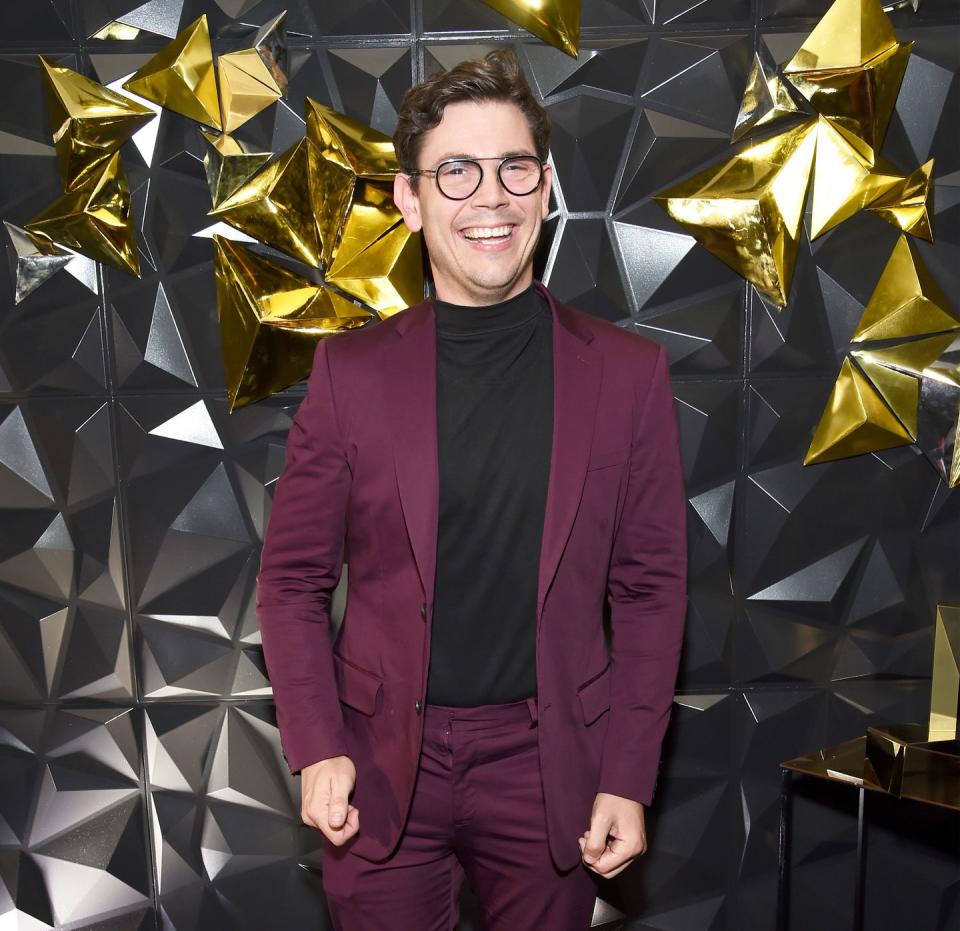
Ryan doesn't always do the right thing in Special. Sometimes he is really selfish. When Tanner shits on his dick, he's not considerate. It's crazy because Tanner was considerate to him in episode three when he had topping anxiety. Ryan doesn't extend that generosity to Tanner, which I thought was so interesting. Because, yeah, Ryan can be kind of a brat. Sometimes he doesn't extend the generosity to people that is extended to him. And that's okay. That's allowed.
Nathaniel Curtis: Obviously when it comes to shows about queer history, the struggle has always been more publicised than the joy behind it. But, you know what? I absolutely love being the way I am. I am surrounded by love, and people who are lovely and lovable. Especially for the younger generation, being able to see that actually, it doesn't matter who you are, or what you look like, or how you identify, or who you love – you are worthy of love. You are capable of love. And you deserve to be loved.
That's part of why It's a Sin worked so well. You just saw a group of people where being gay wasn't a character trait; it was just who they were inherently. It showed them having a damn good time. It showed them going out and dancing and having sex. Getting up and having breakfast in the morning. It showed the normality of it.
That's something I would love to see. And also, bring us gay superheroes. Give us a story of the Trojan War where Achilles and Patroclus are actually lovers. Get more gay Disney characters. Give us, I think, the opportunity. That's one thing that I'd love to see.
Denis O'Hare: The idea of identity is fracturing, out of necessity, whether it's gender identification or political alignments. Certainly the gay community, in broad strokes, has not been free of racism. I think in exploring issues of our community, that story could certainly be told – and also, just a bigger story of: do we have a community still? Are we a community? Do we need to be a community?
There was a period when it was safer to be together when you can band together and face the enemy. Is that still true? I, as a gay atheist socialist who hates America, who left America, have very little in common with a gay Republican who voted for Trump. What binds us? Nothing. Nothing! The fact that he's gay does not make us a community.
So what makes us a community? Is there a gay community anymore? Do we still have a gay community? Is it centred around bars? What is it centred around?
On the advice they would give to young queer people...
Annie Wallace: The trans experience for most people, when I was growing up, was extremely solitary. You had to do all the research yourself. That's very different now. The assistance and the advice is readily available, largely because of the internet. The internet has bound together minorities like never before. It's the primary place where people who are LGBT+ can find information about themselves and like-minded people. And it can put them in touch with others in a social context.
But the landscape for young trans people has been appalling since the anti-trans movement arrived in about 2016. There's been a huge movement stopping young people from receiving any kinds of counselling or advice because they believe that young people cannot decide that they are trans.
It's like, "They're too young to know. It's just a phase." But they said the same thing about gay kids back in the day, too. They hold the belief that you don't know who you are until you're an adult. And those of us who are LGBT+ know that that's absolute rubbish. I didn't have a word for it, but I knew I was different from about 5 years old.
T'Nia Miller: Find your tribe. If you don't have the family support, find your tribe. Family is more than the bloodline that connects us. Some of my closest... what I call my soul family – I'm closer to them than I am with my actual family. They're made up of different actors and musicians, and most of them are queer.
Family are the people that come along the way, not necessarily the ones you were raised with. And you don't need to seek anyone else's approval. No-one's watching what you do in your bedroom, or wherever you choose to do your business. Literally.
The reason that I started speaking about my own sexuality is because I realised that there were no elders – Black elders – that I knew that I could turn to and go, "Oh, right. My mum says it wrong, but there's an auntie who's the same age as my mum," or, "There's a middle-aged woman who's a lesbian." The more young people see it, in their subconscious, it gives them permission to be free, that it's okay. And that's so important.
Nathaniel Curtis: One thing I've learned that's incredibly important is that family doesn't stop at blood. Some people are very, very fortunate to have every member of their family be very supportive. But not everyone has that. And that's okay because you are going to find people out there who love you unconditionally for who you are.
Also, it's okay to struggle with your sexuality. As long as it doesn't affect other people, it's okay to be like, "I don't know if I identify as gay or bi or non-binary." It doesn't matter where you fall in that, but there is a whole family out there who are going to support and love you. If it's hard, it's going to be okay. If it's okay, at points it's going to be hard.
On their proudest achievements...
Ryan Jamaal Swain: I think that for me, I'm just mostly proud of showing up in my fullness, in all of my... either my ugly or my joy or my happiness or my sadness. And just showing up to be seen.
That's such a powerful act, to just show up. Showing up for yourself and showing up for the people that have tapped into your communities that you represent.
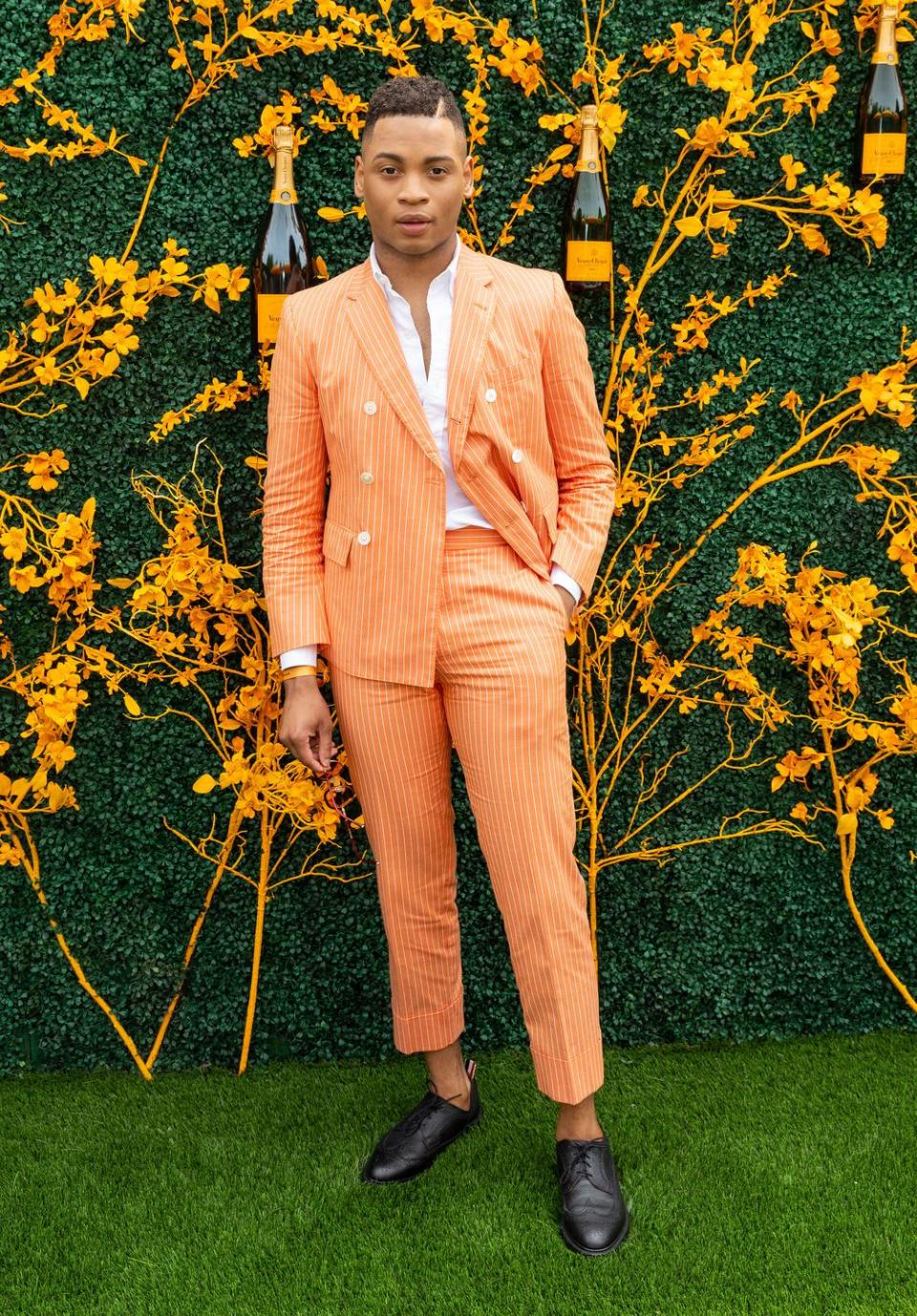
What a powerful act to be truthful. To be vulnerable. To be authentic. And sometimes – I mean, it's mostly always scary to do. I've never known it not to be scary. Showing up has really given me the most joy. It's given me a lot of anxiety, still. But still, mostly joy and happiness.
Annie Wallace: I'm very proud of the work I did with Coronation Street because Hayley Cropper was such a monumentally important LGBT character. Literally one of the most important characters in the world, as far as I'm concerned. I helped a bit, but it was down to the writers and Julie Hesmondhalgh to create that character, to make her the British public's relatable trans person. And that trans person was nice and kind and unthreatening.
Sometimes you have to go in with that attitude. You can push the envelope later. You can start making people criminals and crafty people and all this kind of thing once people have accepted that people who are different are not, by their nature, evil. Which is stupid. But that's how people feel. Difference is something to be afraid of, for many people, and they will think of the worst.
Hayley's role was very ground-breaking in terms of bringing the story to the public's mind. We were able to push for trans rights in the early 2000s, and we got them. I'm absolutely sure that the Gender Recognition Act of 2004 would have taken a whole lot longer had Coronation Street not brought the conversation into the public sphere in a way that other programmes are doing now, such as Ash Palmisciano is doing on Emmerdale, where trans men are able to have that conversation about their journey.
Nathaniel Curtis: I'm proud of the resilience that I have. I'm proud that I kept going. There were moments that I didn't. And I think that despite being 6ft 5 and Brown and I have long hair and I'm queer – openly queer, as well – I think that despite being turned down for so many things, I think that I just... I'm just proud that I kept going. Because there were times I didn't want to as well. That's probably the one thing I pat myself on the back for now.
This month, Digital Spy Magazine counts down the 50 greatest LGBTQ+ TV characters since the Stonewall riots. Read every issue now with a 1-month free trial, only on Apple News+.
Interested in Digital Spy's weekly newsletter? Sign up to get it sent straight to your inbox – and don't forget to join our Watch This Facebook Group for daily TV recommendations and discussions with other readers.
You Might Also Like

 Yahoo Finance
Yahoo Finance 